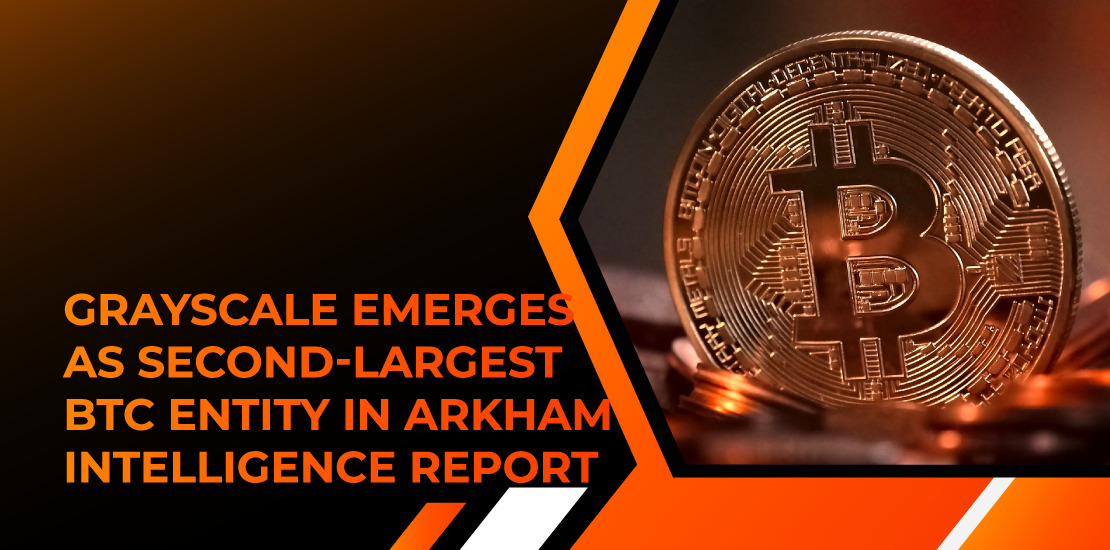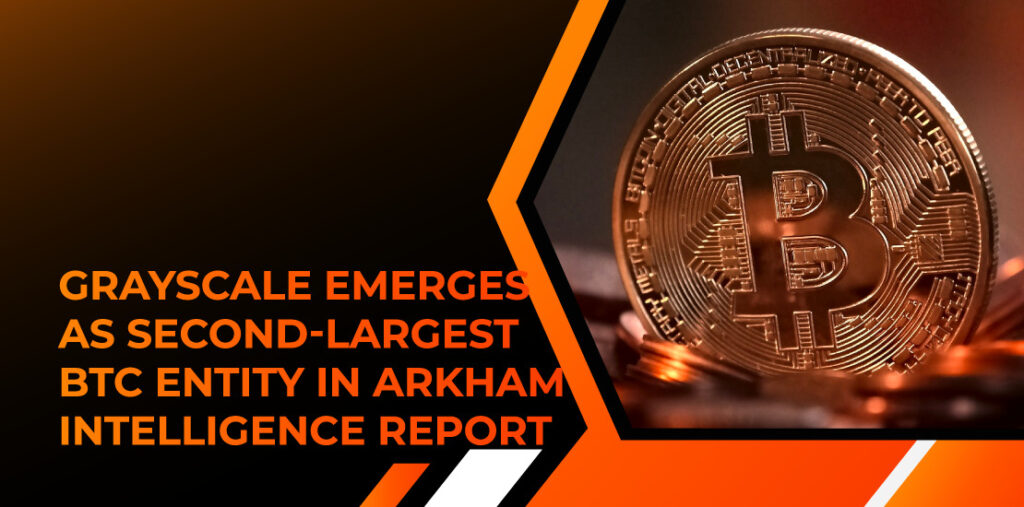- September 8, 2023
- Posted by: [email protected]
- Category:


Arkham Intelligence, a prominent on-chain analytics platform, unveiled a surprising revelation on September 6: Grayscale has secured its position as the second-largest Bitcoin (BTC) entity globally. This accolade is based on data showcasing over 1,750 wallet addresses linked to the holdings of the Grayscale Bitcoin Trust (GBTC).
While each of these wallet addresses individually contains less than 1,000 BTC, the equivalent of approximately $25.7 million, the cumulative total paints a staggering picture. Arkham’s social media post underscored that these aggregated holdings amount to approximately $16.1 billion, a figure closely aligned with the data available on Grayscale’s official website. This substantial BTC reserve suggests Grayscale’s capacity to accommodate withdrawal requests efficiently.
The exact location of Grayscale’s extensive BTC holdings has long intrigued the Bitcoin community. Despite numerous requests for transparency, Grayscale has chosen not to disclose its wallet addresses, citing security concerns as the primary reason. This has sparked skepticism among some members of the community, who question whether Grayscale truly possesses the BTC holdings it claims.
It’s worth noting that while Arkham does not provide a comprehensive list of addresses for GBTC, it does distinctly mark each Grayscale address within the transaction history for every wallet, adding a layer of credibility to their claims.
In addition to its substantial Bitcoin holdings, the Grayscale Bitcoin Trust also boasts 3.03 million Ethereum (ETH), valued at approximately $4.9 billion. Grayscale’s diverse portfolio extends beyond these flagship cryptocurrencies, including $1.86 million in Chainlink (LINK), 1.74 million in Polygon (MATIC), and various other altcoin assets. In total, Grayscale’s assets exceed $20.9 billion, with BTC and ETH forming the majority of its holdings.
Grayscale is currently embroiled in a legal battle with the U.S. Securities and Exchange Commission (SEC) as it endeavors to transform its trust into an exchange-traded fund (ETF). In a recent letter to the SEC, Grayscale’s legal team argued that a court of appeals ruling clarified that “there is no available rationale that would distinguish a bitcoin futures ETP from a spot bitcoin ETP,” challenging the Commission’s prior stance.
Meanwhile, the SEC has postponed its decision on six other spot Bitcoin ETF applications until October. Notable applicants include BlackRock, Fidelity WisdomTree, Bitwise, VanEck, Invesco Galaxy, and Valkyrie.
Notably, in June, Arkham Intelligence introduced the Intel Exchange, a platform designed to empower Web3 investigators and researchers to monetize their expertise. While the platform has faced criticism for its disclosure of private blockchain user information, some have labeled it a “snitch-to-earn” platform. Arkham’s CEO contends that the company aims to level the playing field by granting smaller players access to valuable information, thus bridging the gap between large institutions and individual researchers.
Towards the end of August, Arkham Intelligence made headlines by identifying a wallet belonging to Robinhood, housing over $2.5 billion worth of Ethereum (ETH). This revelation marked Robinhood as the owner of the fifth-largest ETH wallet, holding an impressive 1.5 million ETH, valued at approximately $2.54 billion. Previously, Arkham had also identified Robinhood as the owner of the third-largest Bitcoin (BTC) address, containing 118,300 BTC, worth approximately $3 billion.



